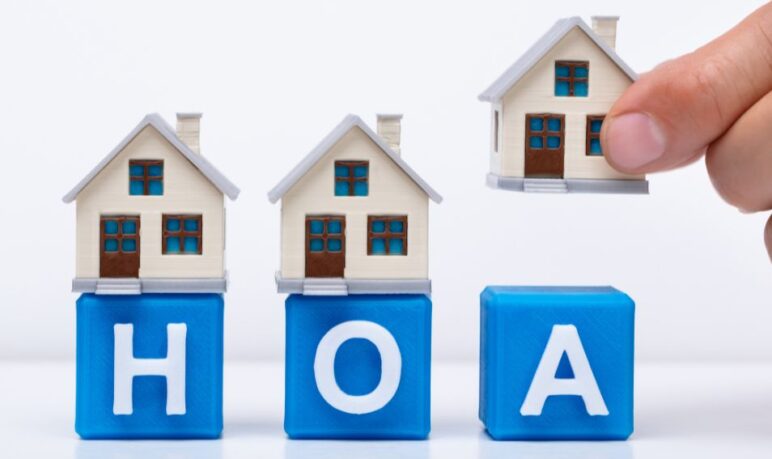
by Inez Kim July 29, 2024
Homeowners Associations (HOAs) are pivotal in fostering harmonious community environments and upholding high standards within residential neighborhoods. However, managing an HOA involves intricate responsibilities ranging from financial management to member communication and property maintenance.
With the evolving demands of modern communities, HOAs increasingly rely on specialized software to streamline their operations. This article explores the transformative impact of HOA management software. We will delve into what this software encompasses, its essential features, the significant benefits it imparts to communities, and the key challenges it helps overcome.
Additionally, we will guide you on selecting the most suitable software solution that aligns with the unique needs of your HOA, ensuring a more organized, compliant, and engaged community.
In This Article
ToggleWhat is HOA Software?
HOA software is a type of property management system specifically designed to assist homeowners associations in managing community operations. This software centralizes and automates tasks such as billing, dues collection, and property maintenance to facilitate better communication between the board members and residents. By integrating various functionalities into a single platform, HOA software ensures that associations can efficiently manage their communities, uphold compliance with legal standards, and enhance the overall living experience of their members.
Key Features of a Good HOA Software

A good Homeowners Association (HOA) software plays a crucial role in streamlining operations, enhancing communication, and ensuring effective management of community resources. Below, I will delve into the essential features of a robust HOA software solution, further elaborating on each point to provide a comprehensive understanding:
Financial Management Tools
Financial management is a cornerstone of HOA operations, and robust tools in this area are vital. Good HOA software should offer comprehensive budgeting tools that allow for the creation, tracking, and adjustment of the community’s financial plans. Accounting features should support various functions such as ledger management, accounts payable, and receivable tracking.
Another critical feature is automated billing, which simplifies the process of dues collection by sending timely invoices and processing payments online. This automation ensures accuracy and reduces the administrative burden. Additionally, financial reporting tools should generate clear and detailed reports on demand, providing insights into the association’s financial health, ensuring transparency, and aiding in strategic decision-making.
Communication Platforms
An effective communication system within an HOA software ensures that all stakeholders—residents, management, and the board—are on the same page. The software should include a dedicated platform for sending newsletters, which can be used to keep residents informed about upcoming events, maintenance updates, and other pertinent news.
An announcement board is also essential for posting important notices and information. Direct messaging capabilities enable one-on-one communication between management and residents or among residents themselves, which is crucial for building community relationships and swiftly addressing individual concerns.
Document Storage and Management
Managing the plethora of documents in an HOA is no small feat. The software should provide a secure, cloud-based storage solution that allows users to upload, organize, and retrieve documents such as meeting minutes, financial records, bylaws, and community policies.
Access controls are crucial to protect sensitive information and only available to authorized individuals. The ability to easily search for and retrieve documents also enhances operational efficiency, ensuring that the necessary documentation backs all community operations.
Maintenance Request Tracking
Maintenance management is another area where HOA software can add significant value. The software should allow residents to submit maintenance requests through an easy-to-use portal. From there, management should be able to track these requests, prioritize them based on urgency, and schedule repairs.
Communication features within this module should notify residents about the status of their requests and provide updates as their issues are addressed. This not only streamlines the maintenance process but also builds trust as residents see their concerns being handled promptly and efficiently.
Member and Property Management
Effective management of member information and property details is essential for any HOA. The software should include a centralized database that houses information on property ownership, resident contact details, and historical data on membership dues and payments.
This centralization aids in maintaining an up-to-date record of the community’s demographic and financial status. It also supports compliance with HOA policies by making it easier to monitor and enforce regulations regarding property use and community standards.
By integrating these features, a Property Management Software for HOA can dramatically enhance the operational efficiency and community satisfaction in a homeowners association, ensuring that all processes run smoothly and in accordance with established guidelines.
Benefits of Using HOA Management Software

Implementing Homeowners Association (HOA) management software can significantly enhance an association’s operational efficiency and community engagement. Here’s an in-depth look at each benefit:
Efficiency
HOA management software automates numerous routine tasks that traditionally consume considerable time. This includes automating dues collections, scheduling maintenance work, and managing service requests.
By reducing the administrative burden on board members and property managers, the software allows them to focus on more strategic tasks that improve the community’s living conditions and property values. Automation also ensures that tasks are performed consistently and on schedule, reducing the chances of oversight or delay.
Accuracy
Accuracy in managing an HOA’s finances and records is paramount. HOA management software helps minimize human errors in financial transactions and record-keeping. The software typically features robust accounting tools for invoicing, budgeting, and financial reporting.
These tools ensure that all financial transactions are accurately recorded and easily traceable, essential for annual audits and financial health monitoring. By automating these processes, the software ensures precision in financial management, reducing the risk of discrepancies and financial disputes.
Transparency
Transparency is crucial in building and maintaining trust within the community. HOA management software can significantly enhance transparency by giving residents and board members real-time access to pertinent information.
This includes direct access to governing documents, financial reports, and meeting minutes through the software’s portal. Such transparency ensures that all community members are well-informed about the association’s finances and decisions, which can lead to better engagement and trust among residents.
Community Engagement
Effective communication is the backbone of active community engagement. HOA management software often includes features like community forums, event calendars, and notification systems that help streamline communication.
These tools facilitate easier participation in community affairs, from voting on important issues to organizing community events. By simplifying the information dissemination and feedback collection process, the software plays a crucial role in enhancing resident satisfaction and promoting a more cohesive community atmosphere.
Incorporating “Property Management Software for HOA” into your community management strategy streamlines operations and builds a more engaged and transparent community environment. This technology is becoming essential in modern residential management, offering robust solutions that cater to an HOA’s diverse needs.
Challenges and Solutions in HOA Management
Managing a Homeowners Association (HOA) can be complex and demanding, with various challenges that require practical solutions. Here’s a closer examination of some common challenges and how HOA management software can address them:
Regulatory Compliance Tools
One of the primary challenges in HOA management is ensuring compliance with a myriad of state laws and local regulations, which can often be intricate and frequently updated. HOA management software includes regulatory compliance tools that help associations stay informed about relevant laws and ensure all practices and procedures adhere to these regulations.
These tools can automatically update to reflect changes in legislation, offering templates for legal documents that meet current standards. By automating compliance checks, the software helps prevent legal issues arising from non-compliance, safeguarding the association against potential fines and legal disputes.
Budget Management Features
Financial management within an HOA involves strict budgeting and financial oversight to prevent overruns and ensure fiscal health. HOA management software comes equipped with budget management features that assist in creating, tracking, and adjusting the association’s budget.
These tools provide detailed financial reporting and real-time budget status, which helps the board make informed decisions about expenses and investments. By using these features, associations can maintain financial discipline, better anticipate future expenses, and ensure that financial resources are used efficiently, all of which contribute to the financial stability of the community.
Conflict Resolution Platforms
Disputes among residents or between residents and the association board are common in community living. These can stem from disagreements over community rules, property use, or other sensitive issues. HOA management software often includes conflict resolution platforms that provide structured dispute management and rule enforcement methods.
These platforms allow residents to lodge complaints or disputes directly through the software, where they can be managed transparently and efficiently. Furthermore, the software can facilitate communication between involved parties to help resolve issues amicably and swiftly, thereby maintaining harmony within the community.
Incorporating “Property Management Software for HOA” into the management strategy can mitigate these common challenges. By leveraging the right tools, HOA boards can enhance their operational effectiveness, maintain regulatory compliance, manage budgets more efficiently, and handle resident disputes effectively, leading to a more smoothly run community.
What to Look for When Choosing HOA Software?

When selecting software for managing a Homeowners Association (HOA), there are several important factors to consider. Each criterion is critical to ensuring the software not only meets the current needs of your HOA but also adapts to future changes and challenges. Here’s a detailed look at each factor:
Customizability:
One of the key features to look for in HOA software is its customizability. This feature allows the software to be tailored to fit the unique requirements and operational procedures of your HOA.
Customizability can include the ability to modify user roles to match the structure of your organization, the flexibility to adjust financial reporting categories to align with your budgeting needs, and the capability to integrate with other tools and services that the HOA already uses, such as payment processing systems or email services.
This adaptability ensures that the software can serve as a comprehensive solution that addresses all specific aspects of your HOA management.
User-friendliness:
The usability of the HOA software is crucial. An intuitive user interface ensures that all members of the community, regardless of their technical expertise, can efficiently use the software. This means simple navigation, clear labels, easy-to-follow menus, and minimal technical jargon.
An accessible interface reduces the learning curve and minimizes frustration, enhancing user engagement and ensuring that both staff and residents can accomplish their tasks with ease. Additionally, consider software that offers a mobile-friendly version or app, as this increases accessibility, allowing users to manage tasks and access information on the go.
Scalability:
As your community grows, so do its management needs. Scalability in HOA software refers to its ability to handle an increasing amount of work or its potential to be enlarged to accommodate that growth. This could mean managing more properties, handling more complex accounting tasks, or providing more detailed reporting and analytics.
Scalable software should allow you to add features, increase the number of users, and incorporate more complex functionalities without significant disruptions or the need for entirely new software. This adaptability protects your investment over time, ensuring the software remains useful as your HOA evolves.
Support and Training:
Robust support and comprehensive training resources are vital components of effective Property Management Software for HOA. Good customer support ensures that any issues you encounter can be quickly resolved, minimizing downtime and frustration. This support might include 24/7 live chat, phone support, or timely email responses.
Training resources are equally important, as they ensure that all users can fully utilize all features of the software. These resources might include online tutorials, webinars, comprehensive manuals, and even in-person training sessions. The availability of thorough training and support not only enhances the user experience but also ensures the software is used to its fullest potential.
By carefully evaluating each of these criteria, you can select an HOA software solution that not only meets your current needs but also supports the future growth and complexities of your community.
HOA Statistics and Technology Trends
Recent trends indicate a significant increase in HOAs’ adoption of digital tools. Statistically, communities using dedicated HOA software report higher resident satisfaction and more efficient management. The future of HOA management is leaning heavily towards mobile integration, AI-driven analytics for predictive maintenance, and enhanced security features.
Conclusion
Integrating dedicated HOA management software has significantly transformed how Homeowners’ Associations operate. These digital tools enhance efficiency, accuracy, transparency, and community engagement, allowing for streamlined administrative tasks, improved financial management, and enhanced communication. Effective software solutions also make addressing key challenges like regulatory compliance and conflict resolution more manageable.
As HOAs evolve, selecting the right software—considering factors such as customizability, scalability, and support—becomes crucial. This ensures that the software adapts to future needs and sustains effective community management. By embracing these technologies, HOAs can optimize operations and create a vibrant, cohesive community environment, fulfilling the expectations of all residents.
Frequently Asked Questions
HOA management software is designed to centralize and automate tasks such as billing, dues collection, and property maintenance, facilitating better communication and compliance within homeowner associations.
It offers tools for budgeting, accounting, and automated billing, which streamline financial processes, ensure accuracy, and provide clear, detailed financial reports to enhance decision-making and transparency.
Yes, it includes features like forums, event calendars, and notification systems that streamline communication, making it easier for residents to participate in community affairs and enhancing overall engagement.
Key features include customizability, user-friendliness, scalability, robust support, and comprehensive training resources to ensure the software meets current and future community management needs.
HOA software includes compliance tools that stay updated with changes in laws, offering templates and automated checks to help ensure all community practices adhere to legal standards and regulations.